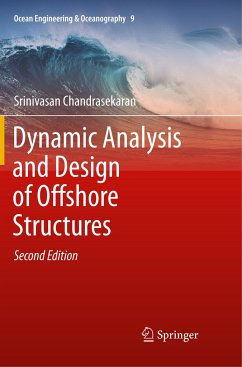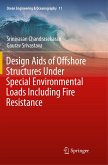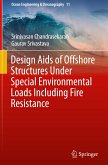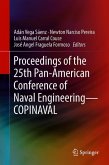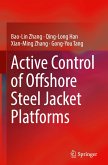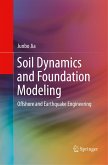This book introduces readers to various types of offshore platform geometries. It addresses the various environmental loads encountered by these structures, and provides detailed descriptions of the fundamentals of structural dynamics in a classroom style, helping readers estimate damping in offshore structures and grasp these aspects' applications in preliminary analysis and design. Basic concepts of structural dynamics are emphasized through simple illustrative examples and exercises. Design methodologies and guidelines, which are FORM based concepts, are explained through a selection of applied sample structures. Each chapter also features tutorials and exercises for self-learning. A dedicated chapter on stochastic dynamics helps students to extend the basic concepts of structural dynamics to this advanced domain of research. Hydrodynamic response of offshore structures with perforated members is one of the most recent research applications, and has proven to be one of themost effective means of retrofitting offshore structures. In addition, the book integrates the concepts of structural dynamics with the FORM-evolved design of offshore structures, offering a unique approach.
This new edition is divided into seven chapters, each of which has been updated. Each chapter also includes a section on frequently asked Questions and Answers (Q&A), which enhances understanding of this complex subject through easy and self-explanatory text. Furthermore, the book presents valuable content with respect to new and recent research carried out by the author in structural dynamics. All numeric examples have been re-checked with more additional explanations. New exercises have been added to improve understanding of the subject matter. Computer coding is also included (wherever possible) to aid computer-based learning of the contents of the book. The book can serve as a textbook for senior undergraduate and graduate courses in civil,structural, applied mechanics, mechanical, aerospace, naval architecture and ocean engineering programs. The book can also serve as a text for professional learning and development programs or as a guide for practicing and consulting offshore structural engineers. The contents of this book will be useful to graduate students, researchers, and professionals alike.
This new edition is divided into seven chapters, each of which has been updated. Each chapter also includes a section on frequently asked Questions and Answers (Q&A), which enhances understanding of this complex subject through easy and self-explanatory text. Furthermore, the book presents valuable content with respect to new and recent research carried out by the author in structural dynamics. All numeric examples have been re-checked with more additional explanations. New exercises have been added to improve understanding of the subject matter. Computer coding is also included (wherever possible) to aid computer-based learning of the contents of the book. The book can serve as a textbook for senior undergraduate and graduate courses in civil,structural, applied mechanics, mechanical, aerospace, naval architecture and ocean engineering programs. The book can also serve as a text for professional learning and development programs or as a guide for practicing and consulting offshore structural engineers. The contents of this book will be useful to graduate students, researchers, and professionals alike.

